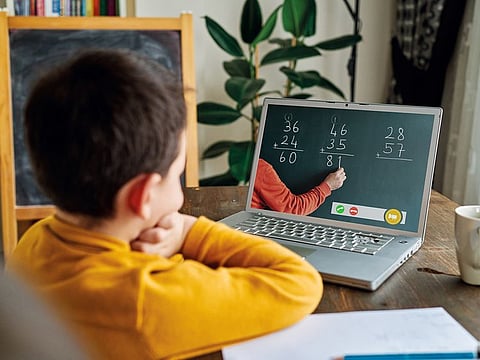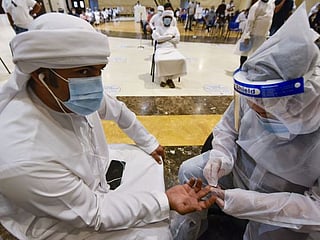India: Kerala child rights panel limits online classes to 2 hours a day
Guidelines issued after complaints regarding problems faced by children

Thiruvananthapuram: School students in Kerala, harried by day-long online classes, have found a saviour in the Kerala State Commission for Protection of Child Rights, which has ordered classes to be limited to a maximum of two hours a day, and to give proper breaks in between class sessions.
The Commission has directed schools that follow the Central Board of Secondary Education and Indian Council for Secondary Education syllabi in the state to regulate timings of online classes and end the practice of engaging continuous sessions.
Three key guidelines
In a note to the concerned schools, the Commission issued three key guidelines: That there should be no continuous classes, give students breaks of 10-15 minutes between sessions, and not to hold online classes for more than two hours a day.
The guidelines were issued following a complaint made to the Commission by the parent of two school-going children aged 10 and 13 studying at the St Mary’s Residential School in Thiruvalla that online classes were going on from 9am to 5.30pm.
Burdened with work
The parent’s petition pointed out that after class hours students had to use their mobile phones for up to 10 hours for practicing for cultural programmes and other activities. This, he pointed out, led to psychological issues and adversely affected vision. He also complained that students found it tough to cope with regular assignments, projects and tests in addition to the classes.
The Commission directed principals of all CBSE, ICSE, Jawahar Navodaya and Kendriya Vidyalaya institutions to provide the monthly time tables of their classes to the respective district collectors and deputy directors of education.
Tech issues
Students also face technology-related issues for online sessions. Maria Peter, a Class 8 student in Kottayam told Gulf News: “There are frequent disruptions because of connectivity issues. When the teacher asks me a question and the internet is disrupted, she may even think that I deliberately cut the link because I didn’t know the answer.”
She says she and her two siblings attend classes using their parents’ phones and when calls come on those phones, it is an irritant for both the children and parents.
Worrying teenage suicides
The stress on Kerala teenagers is also reflected in the worryingly high number of teenage suicides in the state.
A recent study conducted by Disha, an NGO, showed that at least 140 teenagers in the 13-18 age-group had committed suicide in Kerala between January and June this year. Following the report, the State Human Rights Commission directed the Social Justice Department to examine the effectiveness of its suicide prevention measures.
According to Disha’s study, the chief reasons for the suicides were family disputes, troubled love affairs, failure in examinations, and desire for gadgets. Thiruvananthapuram and Malappuram with 22 and 20 suicides respectively, led the teenage suicide chart.
Significantly, these suicides have happened despite the state having a tele-counselling initiative for teenagers called ‘Chiri’ (laughter) and a health department programme called ‘Ottakalla Oppamundu’ (You are not alone, we are with you).










